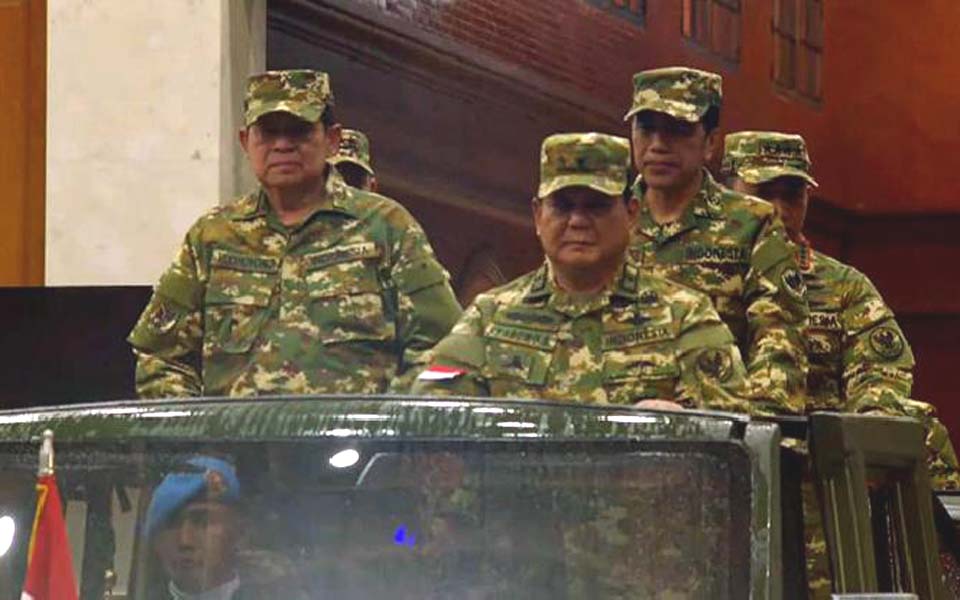Nicholas Ryan Aditya, Jakarta – Parliamentary watchdog Forum of Concerned Citizens for Indonesia's Parliament (Formappi) says that this is not the first time that a survey has shown the public's low level of trust in the political parties (parpol) and the House of Representatives (DPR).
Formappi legislative division researcher Lucius Karus says that the public's trust in the two institutions has always been low.
"The public's low level of trust in the parpols and DPR, I don't think that this is news. Almost all surveys of late have shown a similar thing", Karus told Kompas.com on Thursday March 2.
Karus is of the view that despite the public's low level of trusts the political parties and DPR are reluctant to make any changes to improve the public's sense of trust.
He also claims that he cannot stop thinking about and is surprised as to why the political parties and the DPR do not show any interest in putting their houses in order.
"Maybe because the survey results are always the same so the parpols and the DPR feel that that this is their fate. Because it's their destiny, they just accept it, okay thanks. After all, even with a level of public trust that is always low, their power is still decisive", he said.
On the other hand, the constantly low survey results show that the parpols and the DPR don't care anymore about the public's assessment.
An attitude of not caring, according to Karus, confirms that the distance between the political parties and DPR and the public is growing wider, even to the point of having no connection at all.
"The public doesn't trust the parliament and the parpols, conversely the parpols and the parliament don’t care about the public. This is why the assessment by various survey institutions on the level of trust in these instructions not promoting the slightest change", he said.
Karus said that the parliament and the political parties continue to be preoccupied enjoying their power. "This preoccupation by the parliament and the political parties can easily be seen from the policies they produce", he said.
"Policies that are directly related to the interests of the parpols and the parliament are easily agreed to while policies for [the benefit] of the ordinary people always take a long time. Look for example at the process of deliberating the RUU Cipta Kerja [Draft Omnibus Law on Job Creation], the RUU IKN [Draft Law on the New Capital City], then compare this with the RUU PPRT [Draft Law on the Protection of Domestic Workers], the RUU PKS [Draft Law on the Elimination of Sexual Violence], which has now become the TPKS Law [on Sexual Violence Crimes]", he said.
Karus says that encouraging the DPR and the political parties to change based on the results of surveys is a waste of energy. This is because, he says, the two institutions have never carried out any changes for the good.
Nevertheless, changes to the two institutions could be made, although this can only be done through elections.
"Members of the public that don't trust the parliament and the parpols should focus their dissatisfaction with these institutions by punishing them through the ballot box", said Karus.
"Unfortunately the public has lacked seriousness in punishing parliamentary members and the parpols during the elections. The votes garnered by the parpols during the elections will always be used as a justification for a situation where the parpols and the parliament is reluctant to change", he explained.
The results of the latest Indonesian Survey Institute (LSI) show that the public's level of trust in the political parties and the DPR stands at only 7 percent. This figure is the lowest among the institutions surveyed.
Quoting from Tribunnews.com, political observer and Indicator Politik Indonesia Executive Director Burhanuddin Muhtadi has spoken about the impact of the low level of public trust in the two institutions.
This was conveyed in a press release titled Public Trust in Law Enforcement Institutions, Issues of Law Enforcement, and the PSSI [Indonesian Football Association] on Wednesday March 1.
According to Muhtadi, the public's low level of trust in the legislative has made it difficult to get appreciation from the public itself.
"If trust is bad, even if there are good policies, it's difficult to get public appreciation for correct policies", said Muhtadi. "If trust in these institutions is bad this explains that data that shows trust in the parties and the DPR is low, right" he said.
As a result said Muhtadi, whatever is done by the political parties and the DPR or regional parliaments, it will still be perceived as bad.
[Translated by James Balowski. The original title of the article was "Kepercayaan Publik ke Parpol dan DPR Paling Rendah, Formappi: Bukan Kabar Baru".]















